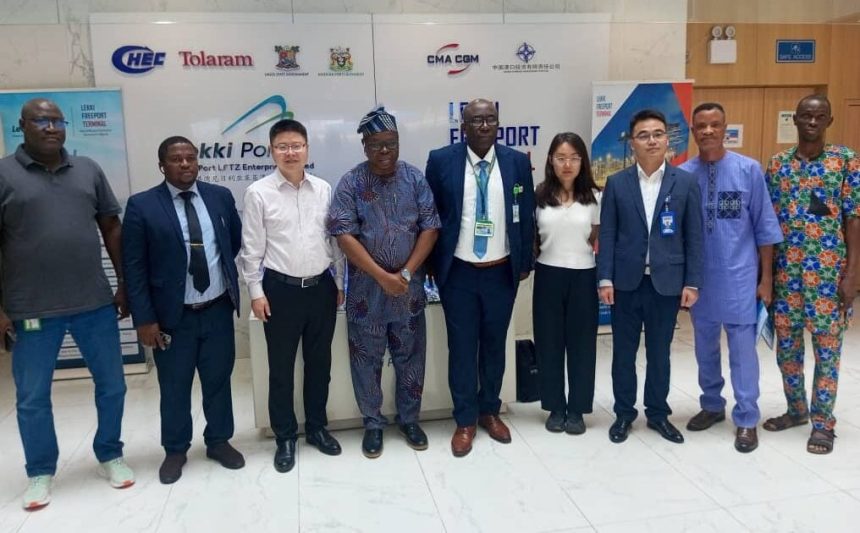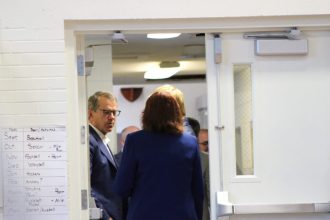The Lekki Deep Sea Port is expected to play a significant role in trade and industrial activity.
During a stakeholders meeting held in Lagos on Tuesday, the port’s Managing Director, Wang Qiang, stated that over the 45-year concession period, Lekki Port is projected to contribute $360 billion to Nigeria’s Gross Domestic Product and create approximately 170,000 jobs.
“We have a 45-year concession period, and during this time, we expect to generate about $360bn for Nigeria,” Qiang said, noting that this estimate was calculated in collaboration with the Federal Government.
The MD observed that the port remains in the early stages of operation, despite the substantial investment to date. He noted that it continues to operate at a loss because of the high initial costs, but added that the port is gradually recovering.
He said, “So actually, we put a lot of investment. We put more than one billion US dollars into construction to finish the construction works for the Lekki Port. So it will take some more time to get back. Right now, we’re still facing a loss for the Lekki port. Yes.
“The reason is not that Lekki port isn’t running well—it is running well. The reason is that we invested a lot at the very beginning, more than one billion dollars. We’re still recovering. It’s going to take a long time.”
Qiang described Lekki Port as a vital link in Nigeria’s logistics network but stressed the need for stronger government support.
“Lekkiport is just like a link point for this logistic chain. There are a lot of things we need to have from the federal government, such as infrastructural development.”
In his remarks, the Port Manager of the Nigerian Ports Authority, Emmanuel Anda, praised the port’s progress, calling it a “game-changer” for Nigeria’s trade and economy.
“Exports through this port are leveraging imports. We have never had it this good,” he said.
Anda expressed optimism that Nigeria could become a global export hub in the next decade if the momentum continues.
“If we continue on this line of business, in the next 10 to 15 years, we’ll be a global hub for exports,” he said.
The port manager also stressed the improved infrastructure around the port.
“Access used to be an issue. It’s no longer an issue because the federal and state governments are determined to construct road networks,” he said.
However, he urged Nigerians to take advantage of the opportunities the port offers.
“The only challenge we have is that Nigerians are not taking the opportunity of what we have here.
“This is the best thing to have happened in Nigeria for quite some time. We need the public to come and experience the services we give out,” he added.
The Chief Commercial Officer of Lekki Freeport Terminal, Kehinde Olubi-Neye, highlighted improvements in operations and access.
He added that automation has boosted efficiency and reduced congestion.
Olubi-Neye also noted that Lekki Port can handle the “largest vessels in Nigeria.”
The Managing Director of Lagos Free Zone, Adesuwa Ladoja, said the surrounding free zones have strengthened value addition in exports.
Ladoja added that Lekki Port stands as a model of resilience and innovation.
“This port was developed during the COVID period, when most things were not happening in Nigeria, but this wonderful project was springing up.
“Lekki Port is something that has brought world-class standards into maritime operations in Nigeria,” she added.
The Dean, Faculty of Arts, University of Lagos, Prof. Akanbi Ilupeju, called for greater awareness of the Lekki Port.
The port’s impact is also being felt in nearby communities. Host community representative Adesanya Adeshina praised the company’s corporate social responsibility initiatives.
“The company’s efforts are a game changer,” he said, pointing to youth empowerment, skills training, and educational support programmes that have improved livelihoods.
Based in Lagos Free Zone, 65 Km East of Lagos, Lekki Port is built on over 90 hectares of land in the heart of the Lagos Free Zone.
It is the first multi-purpose deep sea port in Nigeria and the deepest in West Africa, with a depth of 16.5 metres capable of receiving 18,000 TEU vessels, making it suitable for transhipment.
In 2019, it commenced a concession period. In 2020, it commenced construction and in 2022, it completed phase 1 construction and in April 2023, it commenced commercial operation.









